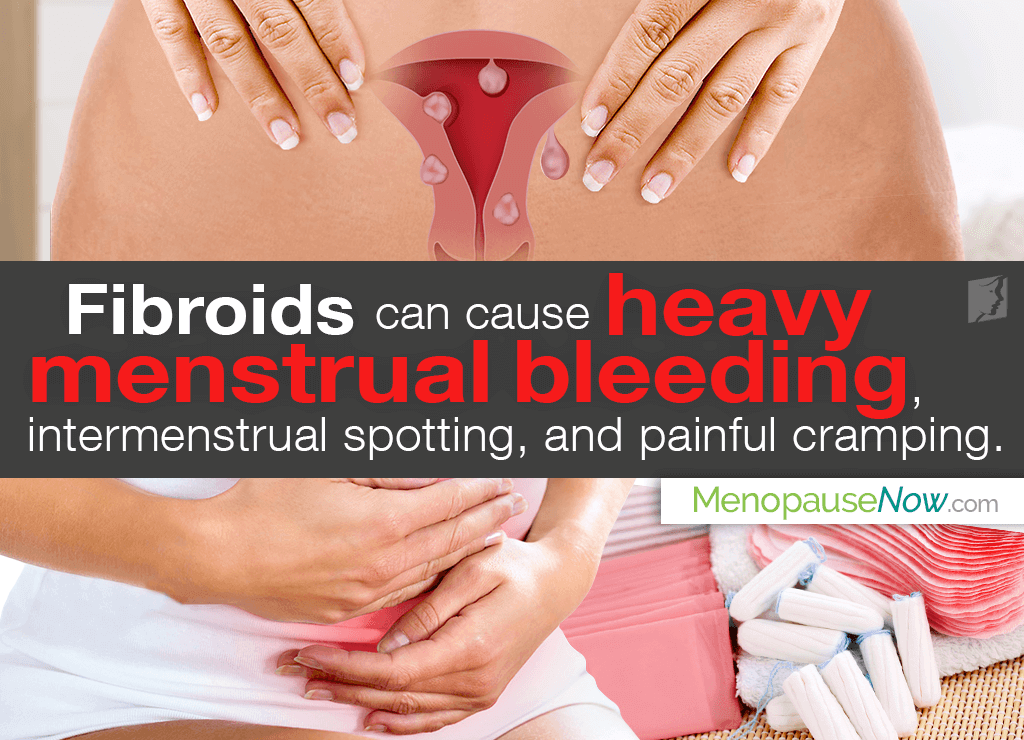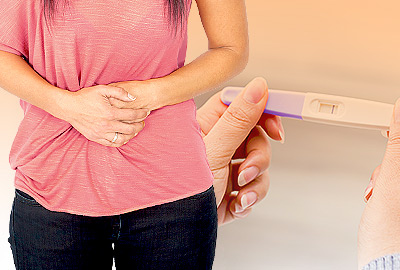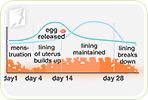Up to 70 percent of women will suffer from uterine fibroids at some point in their lives. However, since only about half of women with fibroids are symptomatic, the condition is not always diagnosed.1
Continue reading to find out if fibroids cause irregular periods so that you can be on your way to having optimal reproductive health and being symptom-free in no time.
Do Fibroids Cause Irregular Periods?
Though not all women experience symptoms of uterine fibroids, those who do often report that they are difficult to deal with. Fibroids can cause irregular periods characterized by heavy menstrual bleeding with blood loss to the point it triggers anemia. Unpredictable bleeding between periods also occurs frequently.
What Are the Other Symptoms of Fibroids?
Painful cramping in the lower abdomen, lower back pain, dyspareunia, a feeling of "fullness" in the lower abdomen, frequent urination, constipation, and reproductive problems - such as infertility, multiple miscarriages, and early labor - are all common consequences of uterine fibroids.
If you experience any of these complications, it is important to see your physician, as you may have this or another gynecological disorder.
How Are Fibroids Diagnosed?
The rarity of symptoms in those with uterine fibroids mean they are often diagnosed by chance during a gynecological exam or imaging tests. If your doctor has reason to believe you have fibroids, you may be referred for an ultrasound scan to confirm the diagnosis.
What Are the Treatment Options?
In the absence of symptoms, treatment is usually unnecessary. Middle-aged women, especially, should keep in mind that fibroids after menopause often shrink or stop growing naturally due to a decrease in estrogen levels.
Bothersome fibroid symptoms are dealt with on a case-specific basis. For example, surgery or infertility treatments are used when fibroids cause problems conceiving. Similarly, the heavy, irregular periods that might result from fibroids can be treated with natural remedies for painful menstruation. In extreme cases where the symptoms are debilitating, surgery is an option.
Is There Anything Else I Should Know?
Fibroids are not dangerous or cancerous. It is only when the symptoms affect your well-being that it's advisable to seek treatment, especially for the heavy bleeding. Irregular periods treatments focus on natural and effective measures that not only address fibroids, but promote optimal endocrine health. Get back into a healthy state of mind and body today!
Sources
- NHS. (2018). Fibroids. Retrieved November 6, 2019, from http://www.nhs.uk/Conditions/Fibroids/Pages/Introduction.aspx
- MedlinePlus. (2016). Uterine Fibroids. Retrieved November 6, 2019, from http://www.nlm.nih.gov/medlineplus/uterinefibroids.html
- Office on Women's Health. (2019). Uterine fibroids. Retrieved November 6, 2019, from http://womenshealth.gov/minority-health/african-americans/uterine-fibroids.html
Footnotes:
- Marsh, E.E. et al. (2018). Burden, Prevalence, and Treatment of Uterine Fibroids: A Survey of U.S. Women. Journal of Women's Health, 27(11). doi: 10.1089/jwh.2018.7076




